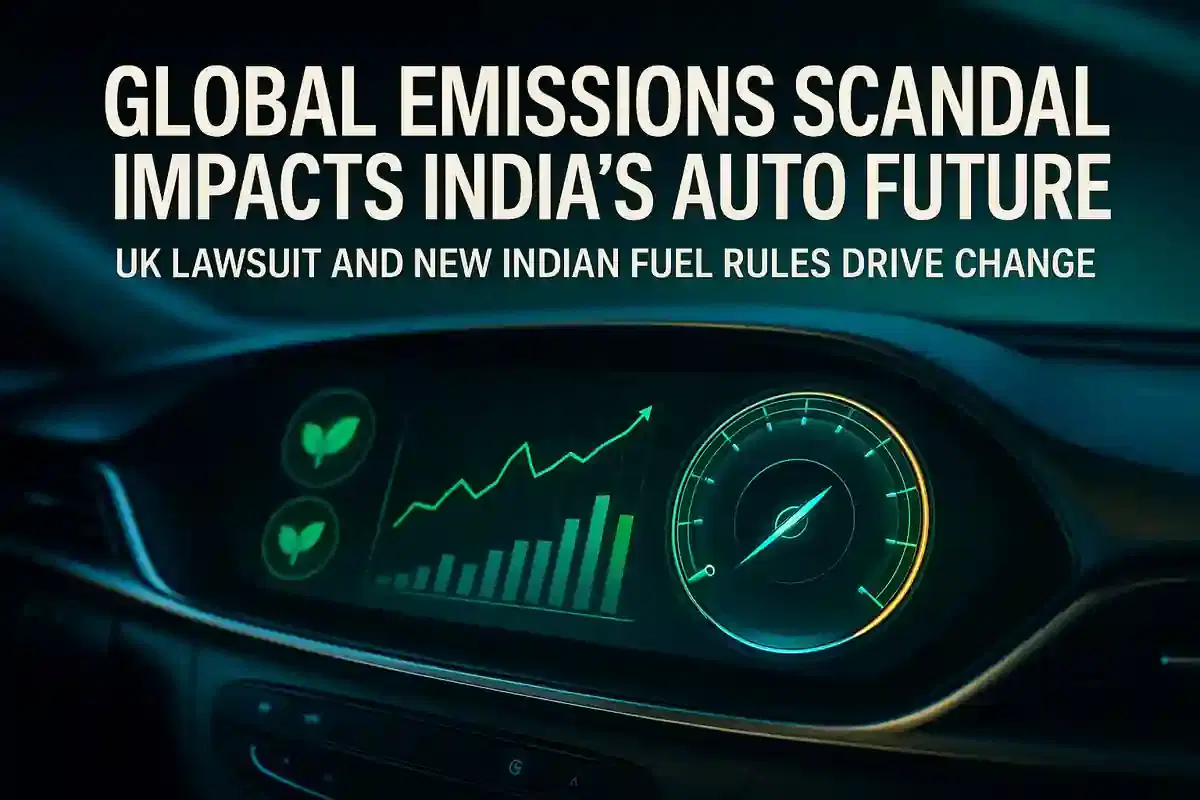UK Emissions Lawsuit Offers Warning to India as Stricter Fuel Efficiency Rules Loom
Auto
|
29th October 2025, 8:33 AM

▶
Short Description :
Detailed Coverage :
A major class-action lawsuit, valued at approximately $8 billion, is proceeding in the United Kingdom against prominent automakers including Mercedes-Benz, Ford, Renault, Nissan, and Stellantis brands such as Peugeot and Citroën. The central allegation is the use of "defeat devices" – sophisticated software designed to detect regulatory emissions tests and temporarily lower pollution levels, but not during normal driving conditions. This situation draws parallels to the 2015 Volkswagen "Dieselgate" scandal.
The outcome of this UK case is anticipated to influence how regulators worldwide design and enforce emission and fuel-efficiency standards. This is particularly significant for India, which is set to introduce its next phase of Corporate Average Fuel Efficiency (CAFE) rules beginning April 2027. These forthcoming Indian regulations will place carbon emissions at the forefront of fuel efficiency measurements, aiming to accelerate the adoption of cleaner vehicle technologies like hybrid and electric vehicles, crucial for India as the world's third-largest automobile market.
The UK legal proceedings also underscore a significant conflict between corporate claims of intellectual property protection and the demand for greater transparency from policymakers and consumers. Automakers are hesitant to disclose proprietary technical data, citing competitive risks, while claimants argue that such secrecy hinders justice. The court is managing this dispute through a tiered documentation system.
Impact This news has a considerable impact on the Indian automotive sector. The global scrutiny and legal precedent set by the UK case can inform Indian regulators and influence the strategies of automakers operating in India. The focus on transparency and stricter emissions mandates will pressure manufacturers to enhance their technology and compliance mechanisms, directly affecting their operations and potentially influencing stock performance for companies involved in the Indian market. Rating: 8/10
Heading: Terms and Meanings * **Defeat devices**: These are special software programs installed in vehicles. They are designed to detect when the car is undergoing an official emissions test. During the test, the software makes the car's emission control systems work harder, making it appear cleaner. However, when the car is driven normally on the road, these systems do not perform as effectively, leading to higher pollution. * **Nitrogen Oxide (NOx) emissions**: These are harmful gases produced when fuels are burned at high temperatures. They are a major component of air pollution and can contribute to smog, acid rain, and respiratory problems. Automakers are required to limit these emissions. * **Corporate Average Fuel Efficiency (CAFE) rules**: These are government regulations that set targets for how much fuel a car manufacturer's fleet of vehicles must achieve on average. The goal is to improve overall fuel economy across the industry, thereby reducing fuel consumption and greenhouse gas emissions. India's CAFE rules specifically link fuel efficiency to carbon dioxide emissions.